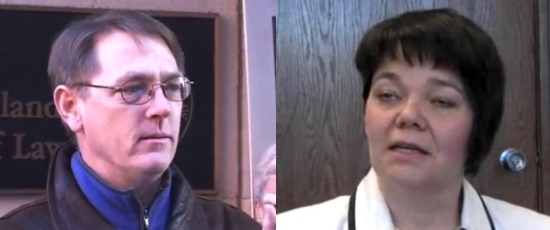
Helping a friend in need: Contingency lawyer Rebecca Randles (r) saves SNAP's David Clohessy
Last Tuesday, a Missouri judge was minutes away from deciding if David Clohessy, the National Director of the anti-Catholic group SNAP, would be held criminally in contempt of court for failing to produce documents for an important civil case involving a Catholic priest accused of abuse.
As we have reported before, despite losing several appeals, Clohessy has steadfastly refused to hand over documents ordered by a judge, and defense lawyers have requested that Clohessy and SNAP be found in contempt.
Enter Rebecca Randles, the lawyer for the plaintiff in the case and someone who has enjoyed a cozy relationship with SNAP. What did Randles do? She outright withdrew the case she had filed, thereby saving Clohessy the public embarrassment of a criminal contempt hearing and further damage to his organization.
The public face vs. the facts
Randles has tried to explain her sudden decision to withdraw her suit by saying that she wished to appeal a recent court decision that removed the Diocese of Kansas-City-St. Joseph as a defendant in the case.
Randles has attempted to give the impression that Clohessy's imminent hearing had nothing to do with her decision. "SNAP isn't off the hook by this at all," Randles has told the media.
Randles' words ring hollow, however. The court's decision to dismiss the diocese from the suit occurred over three months ago. She easily could have made her decision to withdraw and refile her case back then. Instead, she waited until the last second before Clohessy's contempt hearing to withdraw her lawsuit.
Randles's suit withdrawal bears all the hallmarks of someone rescuing a friend from legal hot water. And her actions should not be a surprise. As we reported earlier this year, lawyers for an accused Catholic priest discovered that Randles was feeding information to SNAP about abuse lawsuits before they were even filed in court.
In the end, what we see is yet another episode illustrating the long and close collaborative relationship between contingency lawyers and SNAP.
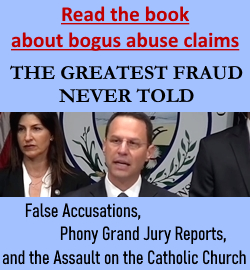


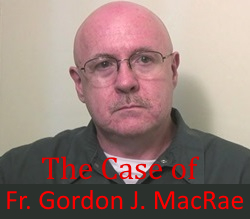

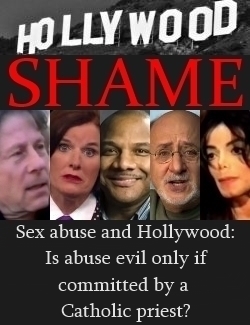
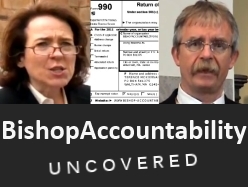
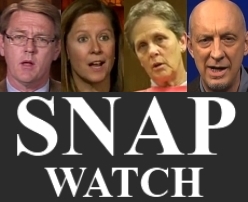
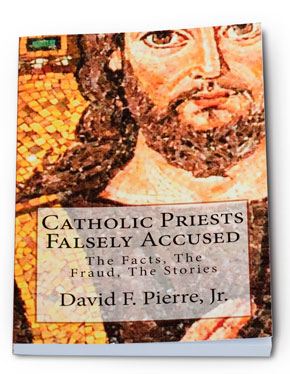
Many thanks to TMR for this article and the information about this case.
Randles was over a barrel of her own, or actually two of them. First, she risked being exposed for having given the information to SNAP – which would have both professional/legal ramifications as well as PR consequences (the SNAP-contingency attorney axis would be exposed).
But second, she had to avoid looking like she was failing her client’s (the Plaintiff-allegant’s) interests by dropping the case. After all, according to the Conventional Script, she is the heroic defender and ‘voice’ of the putative victim – and how would it look if she dropped her client’s case like a hot potato merely to avoid exposing not only SNAP’s but her own misdeeds?
So – as the TMR piece here reports – she suddenly and at the very last minute comes up with a professionally-face saving gambit: she suddenly decides she wants to appeal a prior decision of the trial court in the case to remove the Diocese as a Party-Defendant. So she takes the whole game back a coupel of innings. Former jurist Kennesaw Mountain Landis wouldn’t have allowed this back in his days as Commissioner of Baseball, but this is Oz and stuff happens here that wouldn’t happen in the normal world.
I am not sufficiently familiar with all the prior steps and documents in the case to assess whether her gambit here is actually going to help or whether it is just a temporary gambit to buy some time but doesn’t have a chance of succeeding … or perhaps – and this is only a possibility – her move will actually open her up to further professional censure because there are insufficient grounds for it; in this possible scenario her move was truly one of desperation, and will only launch her from the frying pan into the fire, and without necessarily saving SNAP’s bacon either. (The client’s interests – as you might imagine – are in this scenario running a distant third in the priorities here.)
The readership is welcome to imagine the conversation she had with her client explaining why she chose to take this most recent step.
The PLAINTIFF's Lawyer?????? I told you it was a Punch and Judy Show (a two person fight voiced by one puppeteer.) How convienient for SNAP the Church's lawyer saves SNAP's ass. How bloody convienient! And you all still buy it??????
What a set up! A fake fight fought for and bought for and by the Church; and all in Missouri. When i said the Church's lawyer above I was right. they're all the Church's lawyers from jeff Anderson on down, knowingly or not, if they work with SNAP.
Do you think the plantiff likes being sacrificed for SNAP?
It is ultimately the plaintiff's decision to withdraw, not Ms. Randles. It was emphatically stated from the get go in this case that the plaintiff had no ties or contact with anyone from SNAP. Sooooooo……why would the plaintiff care what happens to SNAP in all of this? That is not a rhetorical question, I really want to know. Now would be good. If not now, sooner rather than later.
Who are these people the lawyer and her client? Do you know who these people are? What the claims are? It's a set piece. Set as in set up. SNAP looks bad yet is saved at the last minute. After spending a fortune defending itself against itself. All to make SNAP appear as a hypocrite to you people; and a victim to those who believe SNAP represents victims. The besting of both worlds and the victims slip down a peg or two in the public eye while SNAP remains, still holding the victims movement in it's grasp. Lovely!
‘Ken W’ asks an interesting question. The Plaintiff has the formal authority over whether to withdraw the lawsuit – which is why I was interested in what Atty. Randles said to the Plaintiff prior to his granting that approval.
I am not familiar with the “emphatically stated” assertion that the Plaintiff had no ties to SNAP. My immediate thought would be: Who made that assertion and when? But my own approach leans toward not-accepting assertions – especially on the internet – unless they can somehow be reasonably corroborated. At this point, and with what we have to go on, I think it is clear that the Plaintiff’s decision, and Randles’ deployment of it at the very last minute, certainly helps both SNAP and Randles. Whether it helps the Plaintiff will depend on that claim of Randles that she will appeal the trial court’s decision to drop the Diocese as a Party-Defendant (surely, the individual priest most likely would not have the deep-pockets that the Diocese and its Insurer(s) would have).
Had the Plaintiff merely had the purpose of ‘holding the Diocese responsible’, as the SNAP comment on this most recent move is reported in the ‘Kansas City Star’, then that purpose would have been clearly frustrated months ago when the trial-judge dismissed the Diocese as Party-Defendant and we are thus left with the curious last-minute timing of Randles’ withdrawing the case in order to appeal that act of the trial-court.
None of the foregoing is sufficient to ground any conclusions about what’s actually going on in all of this.
But I would say that if the Diocese pulled such a last-minute maneuver as this – and with the assorted ancillary issues about alleged machinations in regard to leaking information – then SNAP and the usual suspects would be screaming bloody-murder about deception and cover-up and so on and so forth.
Sauce for the goose, sauce for the gander – as the saying goes. And a question of fundamental fairness in the legal process. But then, we have heard – and from Mr. Clohessy himself in his original Deposition – that there must rightly be a double-standard: since the Church is presumptively evil, than even any legally acceptable and rather conventional and unremarkable efforts to defend itself must be condemned; but since SNAP and similar others are engaged in such a ‘good’ project (against such a presumptively ‘evil’ entity), then SNAP and similar others must be given the widest latitude to bend actual truth in the service of some presumed ‘larger truth’ (i.e. that the Church is presumptively an evil, ongoing, deliberate, and long-standing perpetrator and enabler of sex-abuse, regardless of the actual truth or falsity of any particular case brought against the Church).
Blah! Blah! Blah!
Publion, Thank you for explaining it all so well.
This is actually an old trick. When the Diocese of Manchester, New Hampshire was in the process of settling cases with no corroboration, evidence, or even investigation – as you reported so factually in your book – Father Gordon MacRae attempted to block the settlements from his prison cell. In response, and to remove the obstacle, the contingency lawyer for the accusers simply dropped the priest as a defendant so that he no longer had any standing from which to object. It's justice for the highest bidder, but it isn't justice at all. I no longer can see how any rational person can maintain that the scandal has not been all about money since its first revelations in 2002. If it isn't about money, then why is it driven by contingency lawyers who each end up with 40 per cent of the take?
Mr. MacDonald, from one Scot to another what else is compensation but money? You have an alternative? Can you give us back who we were before the abuse? Or the lives we could have had? For example relationships? We victims tend to isolate ourselves out of fear of further injury. Can you give us back the opportunities to improve our lives that we destroyed through that inability to trust. If you can then sign me up. I'd happilly give my settlement back. But you can't do those things for me or any other victim. Financial compensation is all that's available now. Healing masses mean nothing to me. The Church has tried those here in L.A. one of the priests offering a "healing" mass was a perp. No we had to hire lawyers. The Church offered no other alternative. It was the Church and it's insurors who chose settlement over trials. And believe me, they dreaded trials. Juries would have finacially killed them.
Publion, it was Clohessy himself during the first deposition and all news media blogs afterwards that made the claim that there were no ties or communications between SNAP and the plaintiff.
Thank you for the come-back, Ken W. Mr. Clohessy, then, made the assertion about no-connections in the same deposition that he put forward his double-standard of truth thoughts. So I'd certainly have to factor that in when assessing his commitment to veracity.
I have here no intention of getting into yet another typical go-round with ‘JR’.
But there is a useful bit in the ‘JR’ comment of Nov. 9 at 1203PM.
What we have been given here is a crystal clear example of the circularity of what I call the ‘victimist’ position in this Catholic Abuse Matter (which would, I suppose, apply to victims (actual and/or otherwise) in any Abuse case: A) the ‘abuse’ (wherever it falls on a spectrum from inappropriate behavior to outright rape) has created permanent and irreparable damage that B) is also life-wrecking so C) ‘healing’ (to include therapy?) cannot be achieved and thus D) the conduct of any further mature living cannot be achieved. Thus E) cash is really the only answer but it’s not because of any desire for said cash but only because the victims (genuine or otherwise) are haplessly caught in the iron-grip of the sequence of events outlined in (A) through (D) above. So (F) it’s not at all any of their fault but rather it’s all the Church’s (or whatever the identity of the abusing-institution’s) fault.
But then: what more can any putatively abusing-institution do beyond cash? Apparently nothing. And yet thus the complaints about a failed-life can continue ad infinitum.
But even in a genuine case of abuse of any kind (sexual, emotional, mental, physical) the person so abused is not relieved of the responsibility for – as the Brits would say – ‘getting on with it’ in terms of life and living. That’s – I would say – an iron law of existence: each human being, no matter what his/her experiences, still has to find it within him/herself to get on with the task of conducting a life.
At the more grievous end of the spectrum – rape or other types of violence at that level – there are certainly grounds for considering therapy as a necessary element of repair. But in the Catholic cases the allegations themselves only rarely reach the level of such extreme infliction; most of the allegations involve actions at the other end of the spectrum. (Which is not in any way intended here to excuse priestly misconduct.)
But if the putative victim has already embraced the approach that no therapy whatsoever can be of sufficient help to get the individual moving resiliently toward dealing-with the experience and getting on with his/her life-project, then therapy is undermined from the get-go.
Nor can I accept the further circularity that it’s the Church’s fault that the individual no longer wants to try – or doesn’t want to embrace the challenge – to continue pursuing the fundamental human individual project of conducting a mature life to the best extent possible.
Further, there remains the hugely difficult task of differentially assessing just what interior damage was caused by the abuse and what damage was (and perhaps continues to be) caused by other issues in the individual’s make-up that are separate from the abuse. So, for example, an inborn tendency toward alcoholism or drug-abuse or a tendency toward lack of resilience in facing the overall existential challenge of being human and conducting a life: how to accurately determine what ‘damage’ was caused by the abuse and what damage was inherent in the individual before any abuse took place?
Yes, a possible response to that highly-complex set of questions is that the abuse might have triggered such latent weaknesses in the individual: as Freud says, under pressure every crystal will break along its own set of ‘fracture lines’, i.e. latent weaknesses in the crystal that are activated by the pressure of – in this discussion – some experience of abuse. That works to some extent for the competent therapist trying to address the current life-problems.
But it’s still conceptually insufficient for tort-actions in the legal forum: how to determine within some reasonable parameters of demonstrable proof that the tortious action caused the damage for which fiscal recompense is demanded?
In the 30-year-old ascendancy of the victimist era (to use my terminology) the solution to this profoundly difficult legal problem has been to merely presume – and with great emotion – that any and all sex abuse, no matter how low on the spectrum the (alleged) specific action ,ay be, causes irreparable and life-wrecking damage.
It is on this thoroughly un-demonstrable presumption that so much law ‘reform’ – civil and criminal – has been based in this era of victimism, with public opinion being bamboozled by both advocacy- journalism and advocacy-science. I have already discussed ‘advocacy journalism’ in other comments on this site; by ‘advocacy science’ I mean the deliberate skewing of selected bits of ‘evidence’ (often merely anecdotal) to reach a pre-determined conclusion in the service of whatever the ‘scientist’ believes is a good cause that s/he should support. The general trope or theory is: X was a perfectly adjusted person on the road to a perfect life until the (alleged) abuse was perpetrated and then suddenly the (alleged) abuse utterly derailed X’s entire subsequent life. It’s a gripping bit of script-dynamic, but there is really no way of proving it. For all anybody knows, it’s a seriously deficient theory if not grossly inaccurate.
And if a government then decides that ‘proof’ – for whatever reasons – isn’t really the point of legal process, then the Rule of Law is lethally undermined. And I think we have seen that happen in this country in the past 30 years; and the corrosion has spread from the initial site of victim-and-abuse matters to much larger areas of domestic and foreign policy.
In a further circularity (and a sly and neat one) the accused organization (the Church and its Insurers in this discussion) that recognizes this lethal skewing of legal process and public opinion and consequently decides that under such conditions it will be foolhardy to attempt a rational defense and instead choose to cut losses by ‘settling out of court’ … can be characterized as simply admitting-by-settlement that all the accusations were genuine and legally meritorious. So whether the organization chooses to fight the fight in a skewed legal forum, or chooses to settle-out-of-court, it is – in this game – going to condemn itself and – additionally – provide with each settlement yet more ‘proof’ that will fuel further allegations. And – as we saw in 2002 – this whole scheme was ramped up to astronomical proportions when ‘bundled lawsuits’ were introduced.
None of what I have said in this comment is intended to excuse improper conduct – at any level – by priests. I very much want to see the Church reform herself in this area – not only by tightening up its enforcement policies but also by sharpening the training of priests at the seminary level. The process initiated by the Dallas Charter reforms (which were in many ways not-yet perfect) has proven itself capable in reaching the former objective; the latter objective – foundational training at the seminary level – has not been so publicly examined, nor need it be.
But I think the Church must robustly work toward it, not only for the sake of the integrity of her ministry, but also because – despite all the inroads of secularism and anti-religious elements in national discourse – this country is heading into difficult times … times in which the mere this-worldly and material efforts of human government (the old Temporal Power) will be proven grossly insufficient to support the increasingly acute human need for meaning and purpose in a country whose culture and condition can no longer of themselves support the weight of being-human and of facing the existential challenges facing the citizens. The Church must be ready to continue her ancient work with all the integrity, competence, dedication and skill that she can possibly muster.
At long last: Have you no shame?
A few further thoughts on my immediately previous comment.
The latent problem in the entire victimist Framing of life is that, when you get right down to it, everybody is a victim of something. Nobody gets through life without being the innocent recipient of some other human being’s or human system’s damaging effects, whether through deliberate criminal action or unintentional ‘structural’ arrangments.
This insight is so true as to be a truism: it’s so very true for so very much of human experience that it tends to explain nothing.
Thus, any specific focus on this or that particular type of victimization has to be deliberately erected and sustained.
Thus too, the whole process forever teeters on the abyss of diluting itself if it’s looked at too closely: after all, who isn’t a victim of something? (I will go so far here as to assert that every reader of this site is legitimately classifiable as a ‘victim’.)
What are the parameters that can rationally rule out any human being from claiming the classification of ‘victim’?
If you look at a ‘victimology’ book (the term is not mine but rather was introduced by the early victim-movement theorists) you will see that this presumption was actually trumpeted by those early theorists precisely to alert everybody to their status as ‘victim’. (I could recommend the 1986 book “The Politics of Victimization” by Robert Elias, published by Oxford University Press; it is unabashedly pro-victimism.)
Even more interesting is the fact – chronicled in Elias’s book – that in the late 1940s, when the movement first came into being, the primary insight was that all peoples are victimized by their own governments.
With that insight, it becomes even more interesting to trace the curious subsequent history of victimism in Western countries, especially the United States: the government actually grasped the theory, but twisted it around so as to deflect focus on governmental activities and instead focused them on other cultural or institutional entities. It is here, I would say, that the Perfect Storm began to coalesce, whereby ‘victimhood’ could be deployed by the government against those organizations which it wished to target for whatever purposes.
And thus there is here a substantial component of the politically-motivated elements and dynamics that have fueled this oddly long-lived and tightly-focused campaign against the Church. After all, a Church that – whatever its actual short-comings – stands strongly against a purely this-worldly secularist government, and espouses belief in a Law beyond the this-worldly that can stand in judgment upon the actions of any human government … such a Church and such an organization is clearly going to be an obstruction to any secularist, materialist, purely this-worldly government’s authority and purview.
When Boston College psychology professor William Ryan wrote “Blaming the Victim” in 1971, one of the consequences was to create a queasy conflation between a) ‘blaming’ a victim for some particular victimization and b) asserting that every human being – regardless of his/her life experiences – always retains some existential (if you wish) responsibility for mastering those experiences and continuing to conduct his/her life as best can be done. If you mentioned ‘responsibility’ in any way whatsoever in the same sentence as ‘victimization’, you were clearly ‘blaming the victim’.
In regard to the Catholic Abuse Matter, I am not in any way suggesting that genuine victims of priestly misdeeds were somehow ‘responsible’ for their victimization experience. Rather, what I am saying is that every human being, regardless of his/her victimization experiences (whatever they may be) still has to shoulder the existential knapsack of mastering that experience and continuing to conduct their lives as best they can.
In other words Pub, don't expect the Church to pay for what it did and does. but get over what ever we did to you no matter what. as quickly as possible. This is pathetic. People hurt by bad products or accidents should just get over it ? ? It's as if you are saying: " Buck up Sparky, It aint so bad. Carry on." Are you a professional psychiatrist? People are victimized by their governments are you pretending they're not? We can also be helped by our governments. It's a daily ad hoc issue. What planet do you live on? You haven't noticed anything but the Catholic Church.
I suggest that instead of trying to paraphrase what you cartoonishly imagine I wrote, you read what I actually wrote and then see if you can by any chance come up with any responses to those ideas, rather than having a pillow-fight with yourself in public over the cartoons in your head.
And I’ll make a deal: if you stop wasting everybody’s time wondering out loud if I am a professional, and a professional psychiatrist, then I won’t wonder out loud if you are a professional psychiatry patient.
But once again I think it becomes clear why so many of these organizations like SNAP have – although they dearly love and demand publicity – avoid any sort of open analysis like vampires avoid holy water. They have a Script, they can’t really justify it if they had to, so they simply restrict themselves to controlled and controllable venues where they can play their one-note symphony and not be ‘judged’ on the quality of the music.
The alternative – as we have seen so often in comments on this site – is to try to make sense of their position and their claims, thus exposing the weaknesses of their whole gameplan, at which point the only option is to claim they’re being insensitively discriminated against and then swing into a sob-story or a rant or both.
SNAP, at least, has been smart enough to realize that such a gambit isn’t going to make them look good – to say the least – and thus they have avoided it.
Jim, If you are going to come on here continuously to kick sand in our faces, make sure you understand first what the commenters are talking about.
Hi Publion,
You must be one of the most intelligent people in the world, and coupled with your ability to express your position in writing is just amazing. I am not writing this to send you on some ego trip. I am so happy the good priests have these entries to read.
Also, I am relieved I am not on the opposite side of an argument with you!!
Have a nice day Publion!!!
I agree with kmc123! Publion's comments always amaze me.
I'm a commentator. I understand what your writing about. Iunderstand what Pub's writing about. I understand what I'm writing about. I understand what we are all writing about. Now if I can understand you and I can understand me, what makes you think I am not understandable and Pub is. I've left out truthful. BecauseI'm truthful. Pub is master of the innuendo. Pub pretends their is a zietgist regarding victimization. I say prove it. Just because victims speak out about their abuse? That's the proof that it's pop psychology? Some fad? Prove it. Prove your thesis. You make the thesis so you are required to prove it. What have you got????
Wasn't it the Church position that they had listened to shrinks regarding the curative rate for Catholic priest sex abusors and that it was bad medicine that put the Church in the scandal spotlight. You tried that line once. it didn't fly. I know this will be a big shock to you but people and institutions are and can be held responsible for their ACTIONS. Pretending Actions never occured or minimizing the breadth of those actions is unforgivable. But you'll keep on doing it cuz you've got nothing else.
I’m happy to offer what I can and I thank ‘kmc123’ and ‘julie’.
As for the two immediately preceding ‘JR’ comments, there is still some useful material to be mined: not so much this time in regard to a) the actual material of the Abuse Matter but rather in regard to b) the content of the thoughts expressed. Doing a little exegesis of this ‘b’ type of comment isn’t for the purpose of picking on anybody, but rather my purpose is this: there are many many types similar to ‘JR’ out there in the internet world and the way their mind works is such that if they see one of their own types of comment go up – especially on a site like this – and no response is made to it, they will (much like ‘JR’, as I will demonstrate below) figure that a fantastic and irrefutable bit of wisdom has just been delivered and has trumped the field. And that just adds to the general confusion, in my opinion.
So to ‘JR’ of 0512PM and 941PM of November 13.
We have JR’s assertive word for it that he is a commentator – which is true since anybody who can handle a keyboard and has internet access can be one.
But then we get the skein of self-assurances by which JR convinces himself he is right and the rest of us just ‘don’t like the truth’ (which is a bit he delivers in a comment on the Manly article that just went up on this site).
Thus i) he understands what other commenters write on this site: which certainly isn’t my impression, and the written record is here for everybody to see (although, presuming JR actually goes back and reads over relevant comments of his own or others, is clearly not the impression he gets). And then ii) he specifically understands what I am writing: if this is true, then he deliberately tries to distract discussion from what I talk about by going off on all the tangents (let’s leave the rants out of it for now) that form the written record on this site.
Then iii) these two presumptions – which of course he presumes are utterly accurate – thus enable this bit of ‘logic’ or what I would say is mock-logic, whackness trying to imitate logic: “Now if I can understand you and I can understand me, what makes you think I am not understandable and Pub is.” [sic] But of course, the answer to that already odd question has been slyly skewed by the two self-serving prior presumptions to the effect that he can understand what other commenters (including me) write and that – marvelously – he can understand himself.
Therefore, his logic forces him to conclude, if he is so clearly understandable then obviously the only reason his comments don’t get the respect he is sure they deserve is because nobody else on this site really respects or perhaps can even recognize ‘truth’ when it is so obviously and clearly put right in front of them. What other explanation can there be? Since he has already presumed-away the possibility that his thought-process is somehow deficient and his motivations tend to the manipulative if not also the deceitful – who can forget the ‘new to the computer’ claim, re-submitted in a later comment to ‘I just got a new computer at the beginning of the year’ so he is ‘new’ to this particular computer … ?) But, in case we have any doubts, he asserts to his own satisfaction “Because I’m truthful”.
And if I and any other commenters aren’t completely and totally convinced by that assertion then the problem must be with us. This is the type of thought-process that justifies competent therapists getting the fees they charge.
I might also mention ‘incoherent’ since in the next sentence he asserts (a pale version of) the point that I had been making: that people can be held responsible for their actions. Although my point was and is that first and last individuals have to hold themselves responsible for conducting their own lives and mastering their experiences – which is not an insight unique to me but is pretty much Existentialism 101.
And as for holding institutions such as the Church responsible, we first have to prove demonstrably that the Church has been responsible for a particular action in the first place. But this is precisely what JR and the rest of the victimist gang will not allow, insisting that their own claims and assertions constitute demonstrable proof per se and that anybody who doesn’t accept those claims and assertions without questions simply doesn’t like ‘truth’.
He then asks me to “prove” that there is a zeitgeist about victimization. In addition to the many comments I have made on that very point, and the Elias book I recently referenced, I’d add the journal entitled “Victimology” and the fact that even as of 26 years ago the 1986 Elias book contains upwards of 1500 references to books and articles and authors, and that Google today responds to the search-term ‘victimology’ with 647,000 entries and to the search-term ‘victim’ with 236 million entries. If any reader wishes to conduct other similar types of such searches, especially of newspapers that are searchable online they are welcome to do so. I would also add the panoply of government agencies at all levels that serve ‘victims’ and the legislation at all levels that exists, starting with California in 1965 and expanding exponentially under the Reagan administration in the 1980s. Or perhaps we should just believe JR and not our own lying and truth-averse eyes?
And characteristically, he conflates the fact that ‘victims speak out about their abuse’ with my abiding points that a) online there is almost no way of corroborating most claims and that b) very few of those claims have ever been tested in court and that c) in the relatively few legal cases where such claims were examined it was necessary to rely on the highly dubious claims (now not considered reliable by many courts) of ‘repressed memory’. My assertion that such speaking-out claims cannot be sufficiently corroborated for legal purposes is not the same as JR’s oft-stated assertion that I claim most victims to be “liars”. (If careful and accurate reading of printed material is necessary to assemble some bit of machinery, then I frankly would not buy anything JR claims to have assembled in his garage.)
But since JR has decided to mimic rational inquiry then I will ask: just what is his own core “thesis”? And can he “prove” it? I ask this not because I have at this point any particular confidence in the material he produces, but rather because this mimicry of rational-inquiry and analysis is a fall-back scam played by many of the usual suspects in online discussion, much like a drunken or half-crazed barfly – realizing that he hasn’t ‘scored’ with shouting out his assertions – will suddenly start trying to mimic a ‘scientist’.
After several hours (more ‘thought’? some email converse with more of the usual suspects?) he suddenly comes up with the material in the 9:41 PM comment. Using merely the trope of ‘psychology’ as his connector-thought, he references some bishops’ claims that they relied on pych-evals for priests. Having somehow to his own satisfaction made that connection, he then apparently (as so often, it’s hard to follow the thought-process here) means to demean the utility or credibility of psychological or psychiatric evaluations (perhaps partly for personal reasons best kept to himself).
And then says “you tried that line once. It didn’t fly”. I have no idea a) what the ‘line’ was and b) when I ‘tried it’ and c) in what forum “it didn’t fly”. Is he still addressing me or has he somehow on in his mind started a conversation with some other entities that he can see and the rest of us cannot? Does he realize that the same psychiatric or psychological forum that underlies such evals also (for a while, anyway) partially supported the oh-so-vital ‘repressed memory’ theory and currently constitutes a substantial element in State mandated sex-offense therapy? Is he for it or against it? Or is he for it if it comes up with results he likes and against it if it comes up otherwise?
And, lastly, where oh where did I ever “pretend that actions never occurred” or that I “minimized” them? I have said that actions which cannot be corroborated cannot legally be said to have occurred, but that’s not the same thing.
And “minimization” is a classic bit from the usual suspects. In order to Keep The Ball Rolling – especially since so many of the documented allegations do not rise to ‘rape’ but rather trend to the lower end of the spectrum of alleged sexual-abuse – the victimist dogma was changed to insist that any sexual-abuse, no matter how small the alleged act itself, has life-wrecking consequences. And that to deny this (utterly unsupported) assertion is merely to “minimize” the damage.
But my point is and has always been that we can’t clearly establish the causal connection of such life-wrecking “damage” in the first place. And so I can’t logically be accused of “minimizing” what hasn’t actually been established in the first place to exist.
But all this is just wayyyy too much thinking for certain types. And to types who aren’t really comfortable with thinking clearly, or who are far too comfortable in thinking that they can think clearly, the type of assertion and emotivism that is the core of so much victimist method has proven an endless vacation on a cruise to nowhere, with everybody on permanent holiday from serious responsibility and allowed to prance around the entertainment deck mimicking whatever roles they choose and trumpeting whatever occurs to them as if it were a crystal-clear grasp of reality.
Everything you accuse me of you do in spades. You are the distractor here not me. You propose a huge many tiered thesis yet fail to produce any proof. You rattle on eternally about types. You act and write as if you know something about this crisis; and the media. Yet when you are asked to give proof to back your thesis. You've got nothing. Zip. So you write on and on and on. Boring almost all into submission through tyranny. They're so dim here they confuse pedantry for intelligence. Go away. You niether illuminate nor illucidate. You are yesterdays paper. You don't think. You just react. You are a reactionary. You just lost an election running this same bulls#4t line. The line that religion is under attack. When in reality religion is being ignored when it's so obviously hypocritical. The people are ignoring you religious "types". Because Jesus was abound kindness towards people especially the victimized; and you are about protecting money. And lying and obfuscating to do so.
Alright, gentlemen. Let’s wrap this one up.
Thank you!